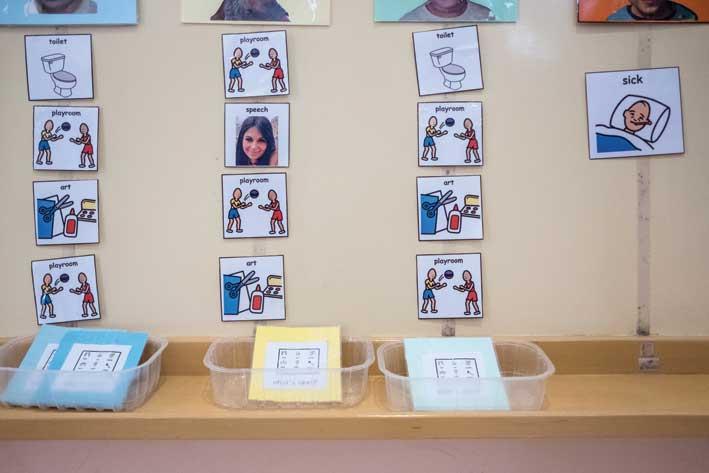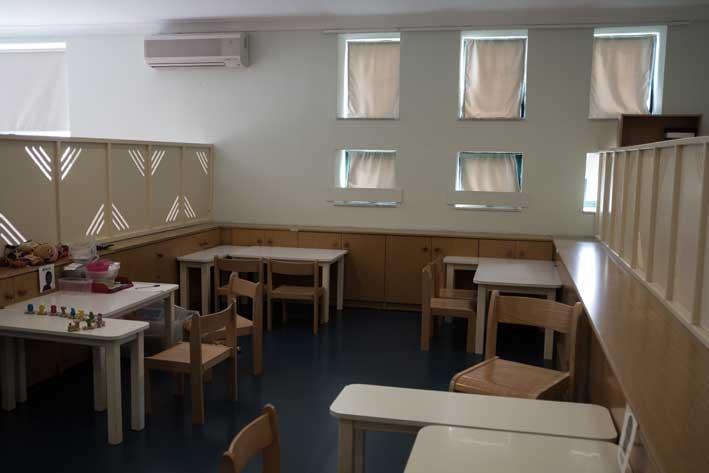How common is autism in Malta?
There are no exact figures regarding the prevalence of autism in Malta. The general indication used in the UK is one out of every 100 people - ie one per cent of the population.
Do you think autism is on the rise here and, if so, why?
The incidence of autism has been noted to be on a steep increase across the world, especially in developed countries. Having said this, is there truly a rise in autism or can the following be possibly reasons for this?
- There is more awareness of this condition and therefore an increase in the number of diagnoses;
- There is an 'expanded definition' of the condition, therefore those at the higher functioning end of the spectrum are being diagnosed and included in prevalence rates;
- More precise assessment tools are being used, which means that higher-functioning people are being identified.
- There may be an actual increase in the incidence of autism due to a variety of environmental factors.
Doreen Mercieca
There is a lot of controversy about the actual rise in the incidence of autism. Research studies such as one carried out in the UK, where the rates of two studies were compared, found that the rates were comparable and so concluded that the incidence of autism was stable. On the other hand, other studies carried out in the USA point to an actual increase in autism rates.
Is it very common that people with autism cannot live independently?
There is no straightforward answer to this. Autism is a 'spectrum' condition (hence the term ASD - Autism Spectrum Disorders), which means that it includes a wide range of symptoms, skills and levels of ability. Individuals with autism have:
- Social challenges that include difficulty in communicating and interacting with others;
- Repetitive behaviour, as well as limited interests or activities;
- Sensory processing difficulties
Depending on the degree to which the above impact on the life of the autistic person, his or her ability to carry out everyday activities, along with challenges when it comes to functioning socially at school, at work or in other situations, may be affected. Therefore the person's ability to live independently may be affected.
Having said that, many adults on the spectrum do manage to live a fulfilling life independently or with minimal support, and also successfully continue their education to tertiary level providing that the necessary support systems are in place, which is not always the case due to a lack of understanding of the condition.

Are many people with autism in Malta part of the workforce or studying and are the numbers increasing?
The numbers are increasing in both the workforce and in further education. Despite this, however, we still need to focus on the degree of inclusion and how this can be improved: How are these individuals being included? Are their colleagues aware of what autism is? What are the attitudes and behaviour of those colleagues towards individuals with autism in both settings? Can we really say that inclusion is taking place due to a rise in statistics?
Do you think there is still a stigma in society regarding autism?
Sadly, yes. There is still a stigma and a gross misunderstanding of this condition. Sometimes the media has 'glamourised' the condition, leading to further misconceptions and generalising the notion that all autistic people are the same. Not all autistic people are 'Rainman' or 'The Good Doctor'. Autism is a spectrum of conditions ranging from extremely intelligent, high-functioning and independent people to those who are lower-functioning and will need full-time support throughout their lives.

What is the way forward to further accommodate autistic people in Malta? What needs to be done in schools and in society at large?
Awareness is key! Sadly, parents raising a child with autism may not only be dealing with the challenges that this condition can present but also having to face the battle of being unfairly judged by society. People are quick to judge and assume that either the parent is failing or the child is simply out of control. The last thing a parent needs is to be told to 'discipline' their child, who may be having a meltdown due to a sensory overload and it is help that should be offered, not judgement.
Teachers must be supported and empowered with more information and training to improve their understanding of the condition. Inclusion is not just physically having an autistic student in the classroom, it's about ensuring that the student participates in the class's activities and benefits from actually being in a mainstream classroom. Inclusion may not be an option for some autistic students, as they may need more specialised help: specific resources, including specially trained staff, communication aids, sensory equipment and environmental considerations that cater specifically for the condition.
Employers must recognise the strengths of many people with autism, such as integrity, honesty, attention to detail, accuracy, an ability to see unique solutions, perseverance and loyalty. Research, although limited, indicates that workplace adjustments can make a huge difference to the employee, members of their team and their employers.
What can a person do in their day-to-day life when accompanied by someone with autism?
EVERYTHING AND ANYTHING AS LONG AS ONE IS PREPARED!
Doreen Mercieca has been working in the field of autism for the past 30 years. She was responsible for the founding and coordination of STEP (Structured Training and Education Programme) for children with autism, which she currently manages, and is the ASD Advisor on the Expert Panel at Inspire. She forms part of the National Autistic Society (NAS) UK Autism Accreditation Programme as a member of the Autism Awards Accreditation Panel and she also participates in evaluating specialised services and schools in the UK as a NAS Accreditation team member.